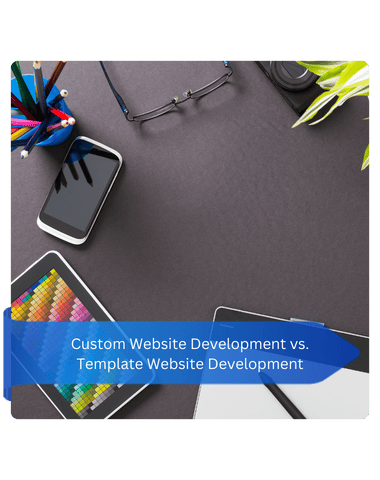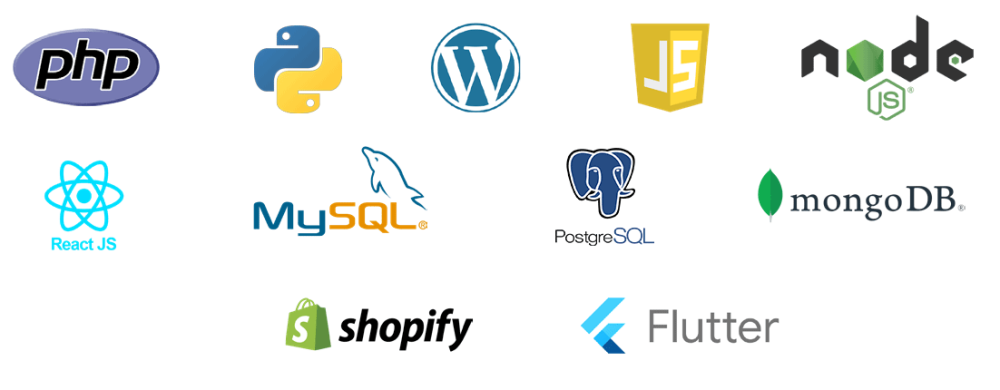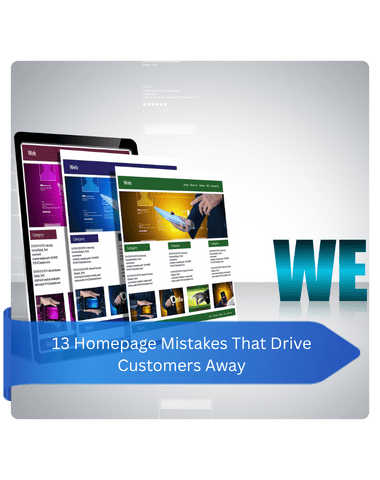Custom Website Development vs. Templates: Which Is Better?
When planning a new website, one of the first decisions businesses face is whether to invest in a custom website development or use a ready-made template website. Both options have their advantages and limitations, and the right choice often depends on factors like budget, long-term goals, and the type of business.
A custom website offers full control, tailored design, and scalability, making it ideal for brands that prioritize growth and unique digital presence. On the other hand, templates provide a cost-effective and quick solution, suitable for startups or businesses that need a simple online presence without heavy investment.
Understanding custom website development vs templates can help in making a decision that aligns with both present needs and future plans.

What is a Custom Website Development?
A custom website development refers to building a website entirely tailored to a business’s brand, goals, and requirements. Unlike pre-designed templates, a custom website is created from scratch, allowing every element—from layout and design to functionality and features.
Hiring professional web developers is especially beneficial for businesses that want to stand out in competitive markets, such as hospitality, eCommerce, or luxury brands.
Pros of Custom Website Development
1. Unique Branding & Design
A custom website is designed to reflect a brand’s personality and values. Every detail—from colors and typography to layout and imagery—can be tailored to create a distinct identity that sets the business apart from competitors.
2. Enhanced Functionality
Unlike templates that come with fixed features, a custom website can be built with specific functionalities, such as booking systems, membership portals, eCommerce integrations, or interactive tools. This ensures the website supports real business needs.
3. SEO Optimization
Custom websites are developed with clean, optimized code that enhances search engine performance. Developers can structure content, metadata, and site speed to align with SEO best practices, helping the site rank better on Google.
4. Scalability & Flexibility
As businesses grow, their website needs evolve. Custom development allows for seamless scalability—whether adding new pages, integrating software, or expanding to new markets.
5. Better User Experience (UX)
Every element can be crafted to deliver a smooth and intuitive user journey. From fast load times to mobile responsiveness, custom websites are built with the visitor in mind, encouraging longer engagement and higher conversions.
6. Security Advantages
Custom-built websites typically offer stronger security compared to generic templates. Developers can implement robust measures tailored to the business, reducing risks of vulnerabilities from outdated or overused template plugins.
Cons of Custom Website Development
1. Higher Cost
Custom websites require professional expertise, time, and resources, which makes them more expensive than template-based solutions. This upfront investment can be challenging for startups or small businesses with limited budgets.
2. Longer Development Time
Since a custom site is built from the ground up, the process—from planning and design to coding and testing—takes longer. Businesses that need an immediate online presence may find this timeline less convenient.
3. Ongoing Maintenance
Custom websites need regular updates, security patches, and technical monitoring. Without proper maintenance, performance and security can suffer, so ongoing support is often necessary.
What is a Website Template?
A website template is a pre-designed layout that can be customized with content, images, and branding elements. Templates are commonly available on platforms like WordPress, Wix, Squarespace, and Shopify. They provide a ready-made structure, allowing users to create websites without extensive technical skills.
Templates are ideal for individuals, startups, or small businesses that need a functional website quickly and at a lower cost. While they offer convenience and speed, templates come with limitations in terms of design uniqueness, advanced functionality, and scalability.
Pros of Website Templates
1. Affordable & Cost-Effective
Templates are much cheaper than custom websites, making them a practical choice for small businesses or startups with limited budgets.
2. Quick Setup
With pre-designed layouts and built-in features, templates allow websites to be launched in a matter of days rather than weeks or months.
3. User-Friendly
Most templates offer drag-and-drop editors and simple customization tools, enabling even non-technical users to create and manage their websites easily.
4. Variety of Options
There are thousands of templates available for different industries and purposes, providing businesses with multiple design options to choose from.
5. Built-In Features
Templates often come with pre-installed functionalities such as forms, galleries, sliders, and basic SEO settings, which can save time and effort during setup.
Cons of Website Templates
1. Limited Customization
Templates have fixed structures and design elements, which restrict how much you can personalize the website. Advanced changes often require coding knowledge.
2. Generic Design
Since templates are widely used, websites built with them may look similar to competitors, making it harder to stand out.
3. Performance Issues
Some templates come with bloated code or unnecessary features, which can slow down the website and affect user experience.
4. Lack of Scalability
Templates are generally less flexible for growth. Adding new features or expanding functionality beyond the template’s design can be challenging.
5. Dependency on Platforms
Using a template often ties the website to a specific platform. This means updates, plugin compatibility, or platform changes can impact your site’s performance and control.
Custom Website vs Template: A Direct Comparison
| Feature | Custom Website | Template Website |
|---|---|---|
| Cost | Higher upfront investment but tailored for long-term growth | Low initial cost, suitable for tight budgets, may need paid add-ons later |
| Time to Launch | Weeks to months | Days to a few weeks |
| Design & Branding | Fully unique, tailored to brand identity | Limited customization, can appear generic |
| Functionality | Advanced, built to meet specific business needs | Limited to template features, may require plugins |
| SEO & Performance | Optimized for speed and search engines | Varies; some templates may be slow or poorly coded |
| Scalability & Flexibility | Easy to scale and integrate new features | Harder to expand beyond template limits |
| Ownership & Control | Full control over code and hosting | Dependent on platform and template restrictions |
FAQs on Custom Website Design vs Templated Website Design
Our Expertise
Technology
-
Website Design and Development
Fully custom designed website
specifically curated for your
business. -
Web app development
Secure, reliable web portals that attract and engage customers -
Mobile app development
To keep up with on-the-go, mobilecentric consumers
-
Progressive web app development
Cost-effective web-based mobile application solutions that can operate in offline environments -
UI/UX design for website, web application & mobile apps
Curating seamless, intuitive experiences for application users -
Software development
Conceptualizing and creating innovative solutions that cater to your business
-
API development
Tools that help you connect and communicate across systems and other applications -
Comprehensive support & maintenance
Ongoing support from our full team of tech wizards for you websites -
Server hosting & support
Server setup, Monitoring and maintenance - one less thing for you to worry about
Technologies we use for development:


Art & Design
-
Logo
-
Graphics
-
Art
-
Sketch
Communication & Marketing
-
Content Development
(content writing, photography and videography)
-
SEO
-
Graphics
-
Social Media
-
E-newsletter
-
Workshop
(Branding & Strategic Communication)


